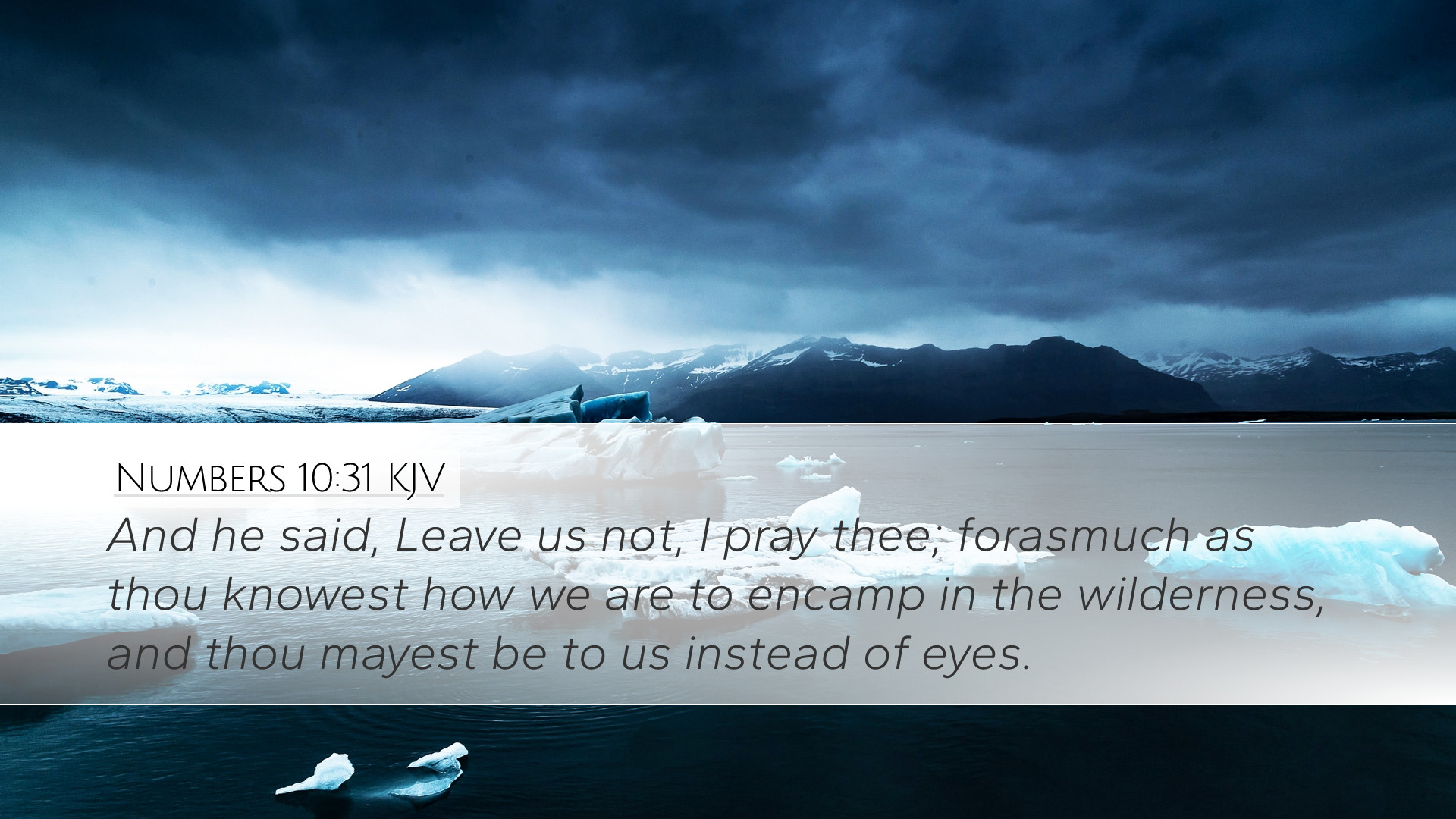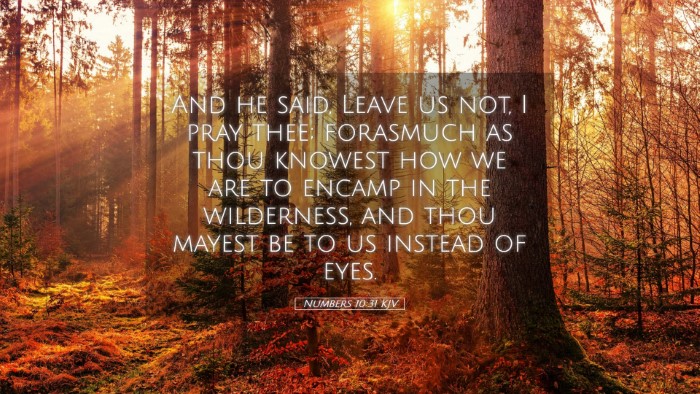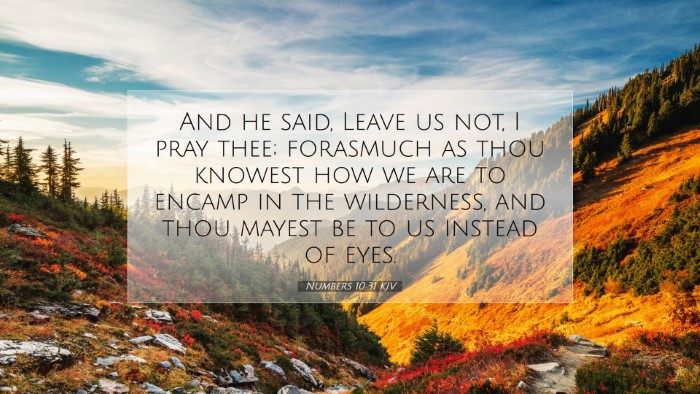Commentary on Numbers 10:31
Verse Context: The verse in question, Numbers 10:31, states: "And he said, 'Leave us not, I pray thee; forasmuch as thou knowest how we are to encamp in the wilderness, and thou shalt be to us instead of eyes'." This verse originates from the context of Israel's journey through the wilderness as they traveled toward the Promised Land. The request made by Moses reflects the dependency of the Israelites upon divine guidance and leadership.
Understanding the Verse
The plea for guidance in the wilderness speaks volumes about the human condition and the need for direction in life. The navigation of the Israelites was not merely physical but deeply spiritual, paralleling the soul's quest for clarity and purpose.
Commentary Insights
-
Matthew Henry’s Commentary:
Henry emphasizes the importance of divine leadership in the lives of believers. Just as Moses appealed for help, he illustrates the vital role of community and shared faith in spiritual journeys. He stresses that without God’s presence, navigating life’s challenges would be akin to wandering aimlessly in the wilderness.
-
Albert Barnes’ Notes:
Barnes comments on the relationship between Moses and Hobab, suggesting that this relationship embodies the theme of unity in diversity. Moses’ acknowledgment of Hobab's value as a guide stresses the importance of listening to wise counsel and teamwork in spiritual endeavors.
-
Adam Clarke's Commentary:
Clarke draws attention to the practical implications of this dependence on God and communal support. He notes that Hobab’s skill in navigation was critical for the Israelites, reminding readers that God often uses people equipped with wisdom and experience to guide His people effectively.
Theological Implications
This verse invites deeper reflection on several theological themes, particularly regarding God’s guidance and human reliance on divine wisdom:
-
Leadership and Guidance:
God's direction is paramount throughout the biblical narrative, symbolized here by Moses' plea. It serves as a reminder that leaders falter without divine support and that reliance on God is the foundation of effective leadership.
-
Community and Dependence:
Moses’ request underscores the communal aspect of faith. The reference to Hobab illustrates how believers are interdependent on one another, and we see a form of collaborative leadership taking shape.
-
The Wilderness Experience:
The wilderness in biblical literature often symbolizes a time of testing, purification, and preparation. The dependence expressed by Moses reflects a crucial stage in the faith journey—acknowledging one’s needs and seeking God’s direction amid uncertainty.
Practical Applications
For pastors, students, and theologians, Numbers 10:31 can be practically applied in the following ways:
-
Encouraging Dependency on God:
Preaching and teaching should emphasize the importance of seeking God’s guidance in all areas of life. Believers are encouraged to rely not merely on their understanding or skills but to seek divine wisdom earnestly.
-
Fostering Community:
This verse can inspire communal practices that promote reliance and mutual support within congregations. It calls for the identification and nurturing of relationships where individuals can provide guidance and direction using their unique experiences.
-
Embracing the Wilderness:
Understanding that wilderness experiences are integral to spiritual growth helps alleviate fears associated with uncertainty. Leaders can guide their communities by framing challenges as opportunities for deeper reliance on God.
Conclusion
Numbers 10:31 reveals profound insights about leadership, guidance, community, and the human condition's reliance on divine direction. By taking lessons from Moses' interactions and the experiences within the wilderness, believers can navigate their spiritual journeys with a clear focus on God’s presence and support. The directives within this passage not only serve as historical commentary on the Israelite experience but also provide enduring principles applicable to contemporary faith practice.


